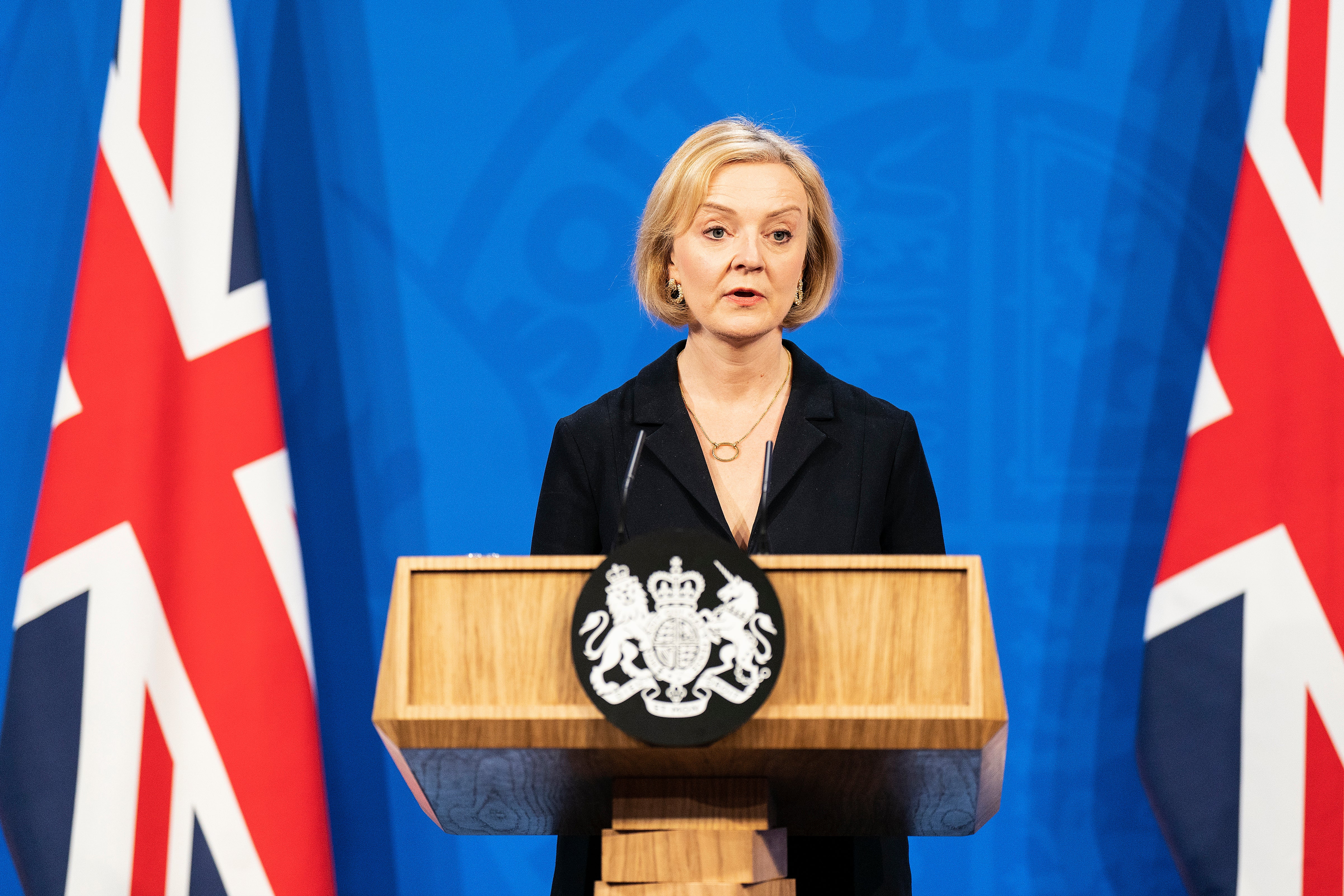Britain cannot go on like this. We call for an election – now
Editorial: If the peculiar Truss-Hunt administration is set on doing things that no one voted for, then they need that essential ingredient of success – democratic legitimacy

Can Britain go on like this? Can Britain, in other words, continue to be governed by an increasingly chaotic administration that is never far from collapse, and lacks democratic support?
At the time of writing, the UK has an unelected prime minister, Liz Truss, who was recently installed by a tiny cabal of activists. But she has already ceded much of her power to another, de facto prime minister – Jeremy Hunt – who is in charge of economic policy and the bulk of the government’s domestic agenda. Can this be right?
Certainly, it is striking that Mr Hunt, who came last in the Conservative leadership election – with all of 18 votes from his fellow MPs – should now have leapfrogged the many others who outperformed him in the hustings, and be running the country. It is possible that Ms Truss and Mr Hunt, an odd couple, will make a success of their unlikely alliance – but at the moment, few think it sustainable.
Now, Tory MPs are openly discussing yet another change of leader, with the general public locked out of the process once again. It does not feel right or legitimate. The handsome mandate won by the Conservatives in the general election of December 2019 was striking in two respects. First, it was the “Brexit election”, virtually a second Brexit referendum, and it was designed principally to “get Brexit done”. Second, and closely related, the contest was dominated by the personality of Boris Johnson, and the mandate produced by the result was – practically, if not formally – one that belonged to him personally, at least as much as it belonged to his party.
In the post-Brexit, post-pandemic, near-insolvent Britain of today, the 2019 mandate seems almost antique. Such has been the transformation in personnel and policy at the top of government that it lacks any real democratic legitimacy. The prime minister and government that were elected in 2019 have since, to all practical purposes, been replaced twice – with the brief free-market experiment conducted by Ms Truss and Kwasi Kwarteng now usurped by what might be termed the New Austerity of Mr Hunt.
It bears repeating: few (if any) of those who voted for “the people’s government” in 2019 expected tax rises, spending cuts and levelling down. Indeed, just as most of Mr Kwarteng’s ill-fated mini-Budget has been abandoned, so have many of Mr Johnson’s central pledges from 2019. Mr Johnson didn’t care for austerity, and was much given to a brand of thumbs-up senseless optimism dubbed “boosterism”. Mr Hunt prefers candid homilies warning about “eye-watering” decisions.
Do you want a general election?
Constitutionally, there is no necessity for an early general election. In Britain’s parliamentary system, there is no limit to the number of different prime ministers who can emerge from any party or coalition that can command a majority in the House of Commons. Indeed, the number of prime ministers who have come to power during a parliament and before a general election is a long one, including Neville Chamberlain, Winston Churchill, Harold Macmillan, James Callaghan, John Major, Gordon Brown, Theresa May, Mr Johnson, and, of course, Ms Truss. A mixed bag, but one that conforms to long-standing convention.
To hold that a government should suddenly be expected to call an immediate general election if, say, a prime minister died in office, or had to resign for personal reasons, would be bizarre. It would turn the UK into a presidential system, effectively handing prime ministers even more power in relation to MPs.
To keep up to speed with all the latest opinions and comment sign up to our free weekly Voices Dispatches newsletter by clicking here
But Britian’s flexible – and mostly unwritten – constitution allows for a party and a prime minister to seek a fresh mandate for a new programme when circumstances have altered as radically as they have since December 2019. If the peculiar Truss-Hunt administration is set on doing things that no one voted for, then it will need that essential ingredient of success – democratic legitimacy.
At the moment, it is embarking on a course that not even its own MPs and party members have approved. The pair may have great difficulty getting their various tax hikes and spending cuts through parliament, even if they could win a vote of confidence. Stasis, along the lines of 2017-19, beckons, and the deadlock will once again need to be broken with a general election and a fresh start.
As things stand, that mysterious entity – “the market” – has got more say in the fate of the nation than the voting public. We’ve had enough of Tory factions and fan clubs plotting and arguing among themselves, and of the yield on a 30-year gilt determining the future of Britain.
It’s time for the people to have their say.





Join our commenting forum
Join thought-provoking conversations, follow other Independent readers and see their replies
Comments